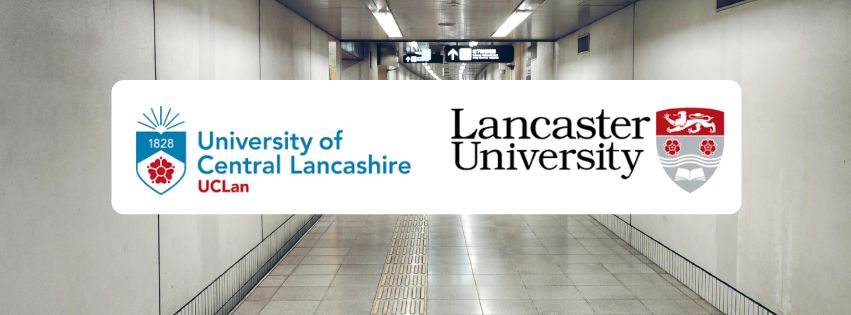
Rethinking Fraud: Understanding the Spaces Where Crime Happens
Fraud is nothing new, but the way it’s carried out, and how we understand it, is changing fast. A recent study, co-authored by researchers, fraud prevention experts and even a reformed fraudster, takes a fresh look at financial crime by asking a simple question: where does fraud actually happen?
The research, published in the British Journal of Criminology, explores the idea of “liminal spaces” – the in-between zones where social rules are fuzzy and identities can shift. These are the grey areas that fraudsters exploit to commit their crimes, whether online, over the phone, or in person.
What Was the Research About?
This study aimed to rethink how fraud is conceptualised in theory and tackled in practice. Traditional models often portray fraudsters as ordinary people under pressure who exploit a one-off opportunity. But this misses a big part of the picture, particularly when it comes to organised crime, online scams, and the deliberate search for vulnerability.
The authors, led by Just for Good founder Dr Nicola Harding, alongside academics from Lancaster University and UCLan, along with professionals from the fraud prevention group We Fight Fraud, developed a new approach. They explored how the concept of liminality (used in anthropology to describe transition spaces, like doorways or rites of passage) can help explain how and where fraud happens.
How Was the Research Conducted?
This was a truly collaborative effort. The team combined academic theory, real-world expertise in fraud detection, and the unique perspective of someone with lived experience of committing fraud. Over three years, they co-produced insights through workshops, case studies, and theory-building discussions.
They examined specific types of fraud -like business email compromise (BEC), romance scams, and insider threats – to see how liminal spaces played a role in each. The result was a framework that connects psychological, spatial and technological elements of fraud in a new way.
What Did They Find?
The research makes four key contributions to how we understand fraud:
Fraudsters seek out liminal spaces. These are not just physical places, but conceptual and digital environments where normal rules don’t apply. Think dating apps, email inboxes, or even the vague trust we place in professional-sounding phone calls.
Fraud isn’t always about immediate financial gain. Often, fraudsters are after data, personal or corporate, which can be used to commit more lucrative crimes down the line.
Victims can become accidental accomplices. A person targeted in a romance scam, for instance, may unknowingly help commit fraud against their employer by sharing sensitive information.
We can use this theory to stop fraud. By identifying liminal spaces and the behaviours fraudsters exploit, we can apply situational crime prevention techniques -practical steps to reduce opportunities for fraud.
What Does This Mean in Practice?
The paper argues that recognising liminal spaces can help everyone – businesses, law enforcement, policymakers, and individuals – spot fraud before it happens. For example:
In business email fraud, a criminal might infiltrate a company’s email system and pose as a supplier. The virtual business relationship becomes the liminal space, where the fraudster adopts a fake identity to send false invoices.
In romance scams, the dating app itself becomes the liminal space. A fraudster builds emotional trust and then exploits it, sometimes turning the victim into a vehicle to commit further crime.
In hybrid cases, criminals use dating apps to recruit company insiders, who can unknowingly help them access data or funds from an organisation.
Using this lens, the team recommends concrete steps to prevent fraud:
Raising awareness through tailored public campaigns
Using secure, multi-factor authentication systems
Encrypting sensitive data and limiting access
Regularly testing systems for vulnerabilities- ideally with input from those who understand fraud “from the inside”
Regulating online spaces that currently fall through the cracks, like dating platforms and messaging apps
Why It Matters
Fraud is evolving, and so must our response. This research reminds us that fraud prevention isn’t just about spotting dodgy emails or suspicious phone calls. It’s about recognising the spaces – physical, digital and emotional- where people let their guard down.
By co-producing theory with lived experience and expert knowledge, this study shows how organisations can better protect themselves and others. For us at .. for good, it also illustrates the power of inclusive, real-world research to inform meaningful change.
If we want to stay one step ahead of fraudsters, we need to understand the game- and the playing field. This research helps us do just that.
At Just for Good, we take world leading and internationally recognised academic research just like this and help it to make real world impact. The insights from this research have gone on to inform security and fraud prevention strategies in some of the top financial institutions in the UK, Eurpoe and beyond. If you would like to learn more about this, please email Nicola HERE.
Citation
Nicola Harding, Emily Cooper, Tony Sales, Andy McDonald, Sarah Kingston (2024) The Liminality of Fraud: Reimagining Fraud Theory to Inform Financial Crime Prevention, The British Journal of Criminology, https://doi.org/10.1093/bjc/azae069